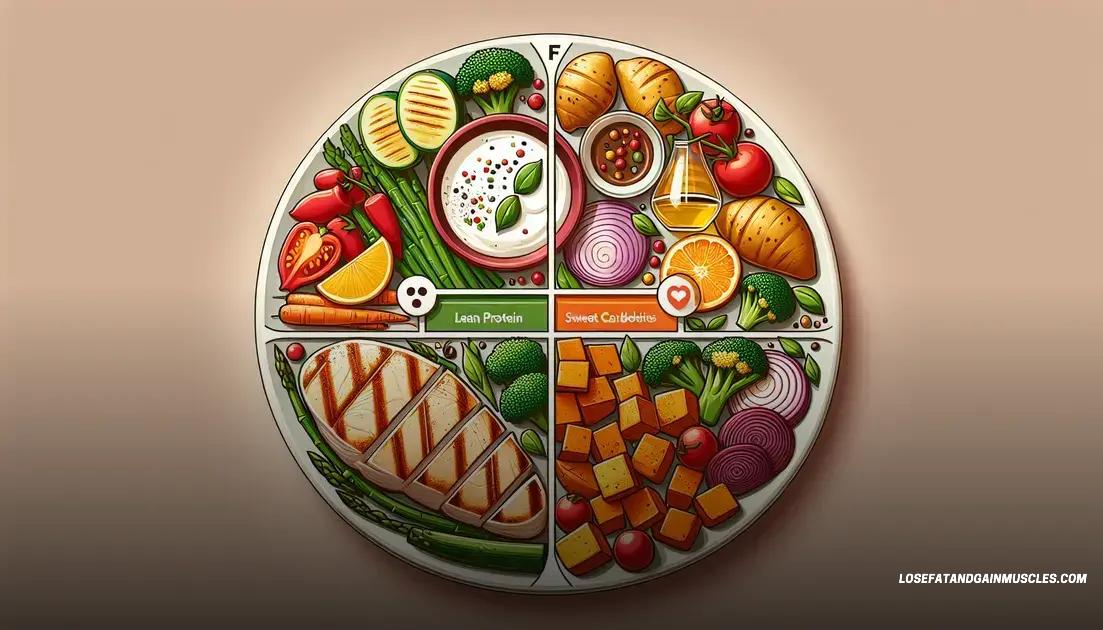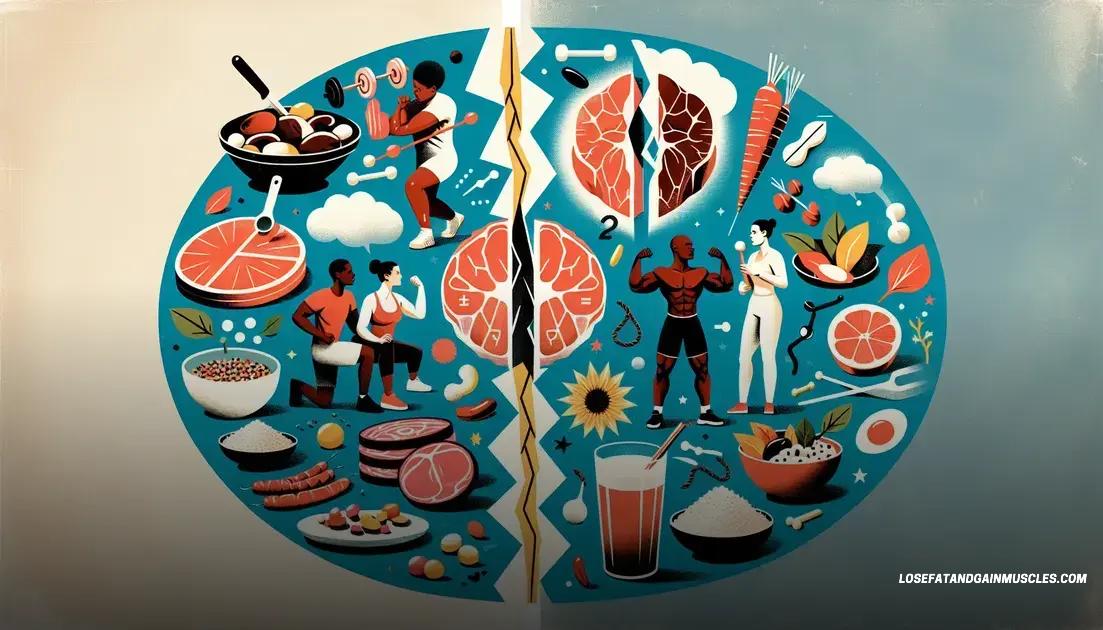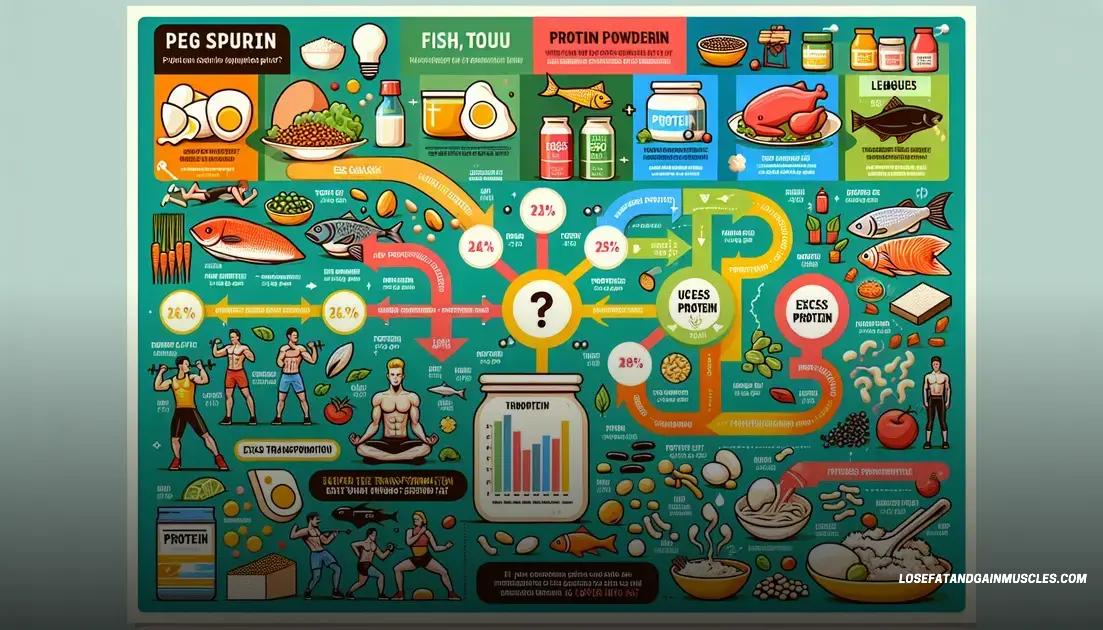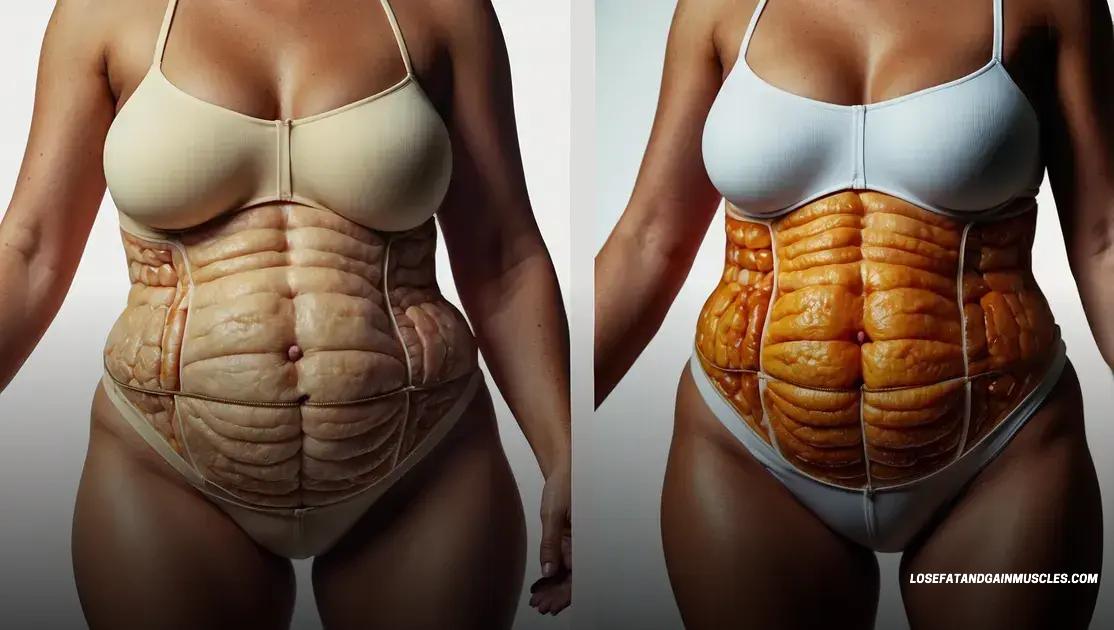Does Protein Turn Into Fat If You Don’t Workout? Unveiling the Truth
Consuming excess protein does not directly turn into fat; rather, it’s the surplus calories that lead to fat storage. Maintaining a balanced diet with adequate exercise is essential for optimal protein utilization and overall health.
Have you ever wondered, does protein turn into fat if you don’t workout? This question is common among fitness enthusiasts and those new to nutrition alike. Understanding how protein behaves in your body is crucial for making informed dietary choices. In this post, we will delve deep into protein metabolism, the role of exercise, and debunk common myths surrounding protein and fat storage.
Understanding Protein Metabolism
Understanding protein metabolism is essential to answering the question, does protein turn into fat if you don’t workout? When we consume protein, our body breaks it down into amino acids, which are the building blocks of muscles and tissues. These amino acids are vital for growth, repair, and overall health.
What Happens After You Consume Protein?
When you eat protein, your digestive system starts breaking it down into amino acids. These amino acids are then absorbed into the bloodstream and transported to cells throughout your body. Here, they can be used for various functions, including making hormones, enzymes, and muscle tissue.
Excess Protein and Its Fate
Now, if you consume more protein than your body needs, what happens? Your body has a way of managing extra protein. It can convert excess amino acids into energy or store them for later use. However, if your overall calorie intake exceeds what your body burns, any excess—regardless of whether it’s from protein, carbs, or fats—can contribute to fat storage.
The Efficiency of Protein Utilization
This brings us back to the main question: does protein turn into fat if you don’t workout? The short answer is: it can, but not directly. Protein itself doesn’t convert to fat. Instead, it’s the surplus caloric intake that can lead to fat accumulation, especially when exercise is lacking.
In Conclusion
Understanding how your body processes protein is critical for making dietary choices. Protein plays a significant role in muscle maintenance and overall health. Whether you work out or not, the key is balancing your protein intake with your energy needs to prevent unnecessary weight gain.
How Enough Protein Affects Fat Storage

When we talk about how enough protein affects fat storage, it’s important to understand the balance your body needs. Consuming adequate protein can help decrease body fat and maintain lean muscle mass.
Protein and Satiety
One of the primary benefits of protein is its ability to keep you feeling full. When you consume enough protein, it increases the feeling of satiety, which can help control hunger and reduce overall calorie intake. This means you’re less likely to overeat, which can contribute to fat storage.
The Role of Lean Muscle
Another crucial aspect is that protein aids in building and maintaining lean muscle mass. Muscle tissue burns more calories at rest than fat tissue does. Therefore, having more muscle can help increase your basal metabolic rate (BMR), allowing you to burn more calories throughout the day—even when you aren’t working out.
Protein’s Impact on Hormones
Furthermore, adequate protein intake can positively influence hormones that regulate appetite, such as ghrelin and leptin. By balancing these hormones, you can better control cravings and prevent excessive fat storage.
Quality vs. Quantity of Protein
It’s also vital to focus on the quality of the protein consumed. Whole food sources, like lean meats, fish, eggs, dairy, legumes, and nuts, provide essential nutrients that aid metabolic processes. In contrast, processed protein sources may lack those nutrients and can contribute to weight gain.
Balancing Your Diet
Additionally, it’s important to maintain a balanced diet that includes sufficient carbohydrates and healthy fats. By ensuring that you have a well-rounded diet, you can enhance the benefits of the protein you consume, leading to better fat management.
The Role of Exercise in Protein Utilization
Understanding the role of exercise in protein utilization is key to maximizing the benefits of the protein you consume. Exercise helps your body utilize protein more effectively, especially when it comes to muscle repair and growth.
Muscle Repair After Workouts
After you work out, your muscles experience tiny tears. This is normal and part of the growth process. Consuming protein after exercising provides your body with the amino acids it needs to repair these tears, helping your muscles grow stronger and larger.
Enhancing Protein Synthesis
Exercise, particularly resistance training, stimulates muscle protein synthesis. This means that your body becomes more efficient at using protein when you regularly engage in physical activities. For instance, lifting weights can boost your body’s ability to utilize protein for muscle repair, enabling you to gain the most benefit from your dietary intake.
Protein Timing
The timing of protein intake also matters. Consuming protein shortly after working out can enhance recovery and promote muscle growth. Many nutrition experts suggest having a protein-rich snack or meal within 30 minutes to two hours after your workout.
Impact on Body Composition
Regular exercise not only helps in muscle building but also plays a significant role in fat loss. By engaging in physical activity, your body burns calories and utilizes stored fat for energy. When combined with adequate protein intake, you can achieve a leaner body composition over time.
Balancing Protein and Activity
It’s vital to maintain a balance between your protein intake and exercise routine. If you are not active, your body may not use protein as efficiently, potentially leading to higher fat storage. Engaging in regular exercise provides a pathway for your body to use protein effectively, making it an essential part of your overall health strategy.
Common Myths About Protein and Fat

There are many common myths about protein and fat that can lead to confusion when it comes to nutrition. Let’s clear up some misconceptions!
Myth 1: All Protein is Good for You
While protein is essential for health, not all sources are equal. Processed protein, like protein bars or certain meats, can contain added sugars and unhealthy fats. Always choose whole food sources such as beans, fish, chicken, and nuts to gain the best benefits.
Myth 2: High Protein Diets Lead to Fat Gain
Many believe that a diet high in protein always results in gaining fat. In reality, protein must be combined with a balanced diet and exercise. If you consume more calories than you burn, regardless of the source, you can gain fat.
Myth 3: Protein Turns into Fat
Another myth is that protein turns directly into fat if you don’t work out. While excess calories can lead to fat gain, protein doesn’t convert to fat in a straightforward manner. It can be used for energy or stored, but not solely as fat.
Myth 4: You Only Need Protein After Exercise
Some think protein is only needed post-workout. In reality, consistent protein intake throughout the day is crucial for muscle recovery and overall health. Eating protein-rich foods at various meals enhances your body’s ability to utilize it effectively.
Myth 5: More Protein Equals More Muscle
This myth implies that simply increasing protein intake will lead to more muscle gain. While protein supports muscle development, factors like overall calorie intake, exercise, and genetics also play significant roles in how much muscle you build.
What Happens When You Consume Excess Protein?
When you consume excess protein, several things can happen in your body. Understanding these effects is crucial to managing your diet effectively.
1. Increased Caloric Intake
Consuming too much protein adds extra calories to your diet. If these calories exceed what your body needs for energy, they can lead to weight gain over time, regardless of the source.
2. Strain on the Kidneys
Excess protein puts extra load on your kidneys. While healthy kidneys can handle a high protein intake, those with pre-existing kidney issues might experience stress that can worsen their condition.
3. Dehydration Risk
High protein intake can lead to dehydration. The kidneys need more water to remove the waste products generated from protein metabolism. This can increase your thirst and the need to hydrate.
4. Nutrient Imbalance
Focusing too much on protein can lead to a nutrient imbalance in your diet. If you consume excess protein at the expense of carbohydrates and fats, essential nutrients may be overlooked, which are vital for overall health.
5. Potential Digestive Issues
Eating too much protein can result in digestive problems. Some people may experience constipation or discomfort, especially if they do not consume enough fiber-rich foods alongside their protein sources.
6. Muscle Loss Risk
Interestingly, an excessively high protein intake without adequate calorie balance can lead to muscle loss. If you aren’t consuming enough overall calories, your body may use muscle for energy instead of fat or protein sources.
Understanding Protein and Its Impact on Health
In conclusion, understanding the role of protein in our diets is crucial for maintaining a healthy lifestyle. While protein is essential for muscle repair, growth, and overall bodily functions, moderation is key.
We have explored how protein metabolism works, the effects of protein on fat storage, and the vital role exercise plays in protein utilization. Additionally, we debunked common myths about protein and highlighted what happens when you consume excess protein.
By staying informed and practicing balance in your nutritional choices, you can ensure that you reap the benefits of protein without the risks associated with excessive intake. Making smart dietary choices while incorporating regular exercise will support your goals for optimal health and wellness.
FAQ – Frequently Asked Questions about Protein and Fat
Does protein turn into fat if you don’t workout?
Protein itself does not turn into fat; rather, excess calories from any source can lead to fat storage if you are not exercising.
How does excess protein affect my health?
Consuming too much protein can strain your kidneys, lead to dehydration, cause digestive issues, and increase your caloric intake, which may contribute to weight gain.
What is the best time to consume protein?
It’s important to consume protein evenly throughout the day, especially after workouts, to optimize muscle recovery and growth.
Can a high-protein diet lead to muscle gain?
While protein supports muscle gain, it’s essential to combine it with a balanced diet and regular exercise for the best results.
Are all protein sources equally nutritious?
No, not all protein sources are equal. Whole foods like lean meats, fish, beans, and nuts provide more nutrients compared to processed protein sources.
What should I do if I’m consuming too much protein?
If you think you’re consuming too much protein, assess your dietary habits, and consider balancing your intake with carbohydrates and healthy fats for better nutrition.













